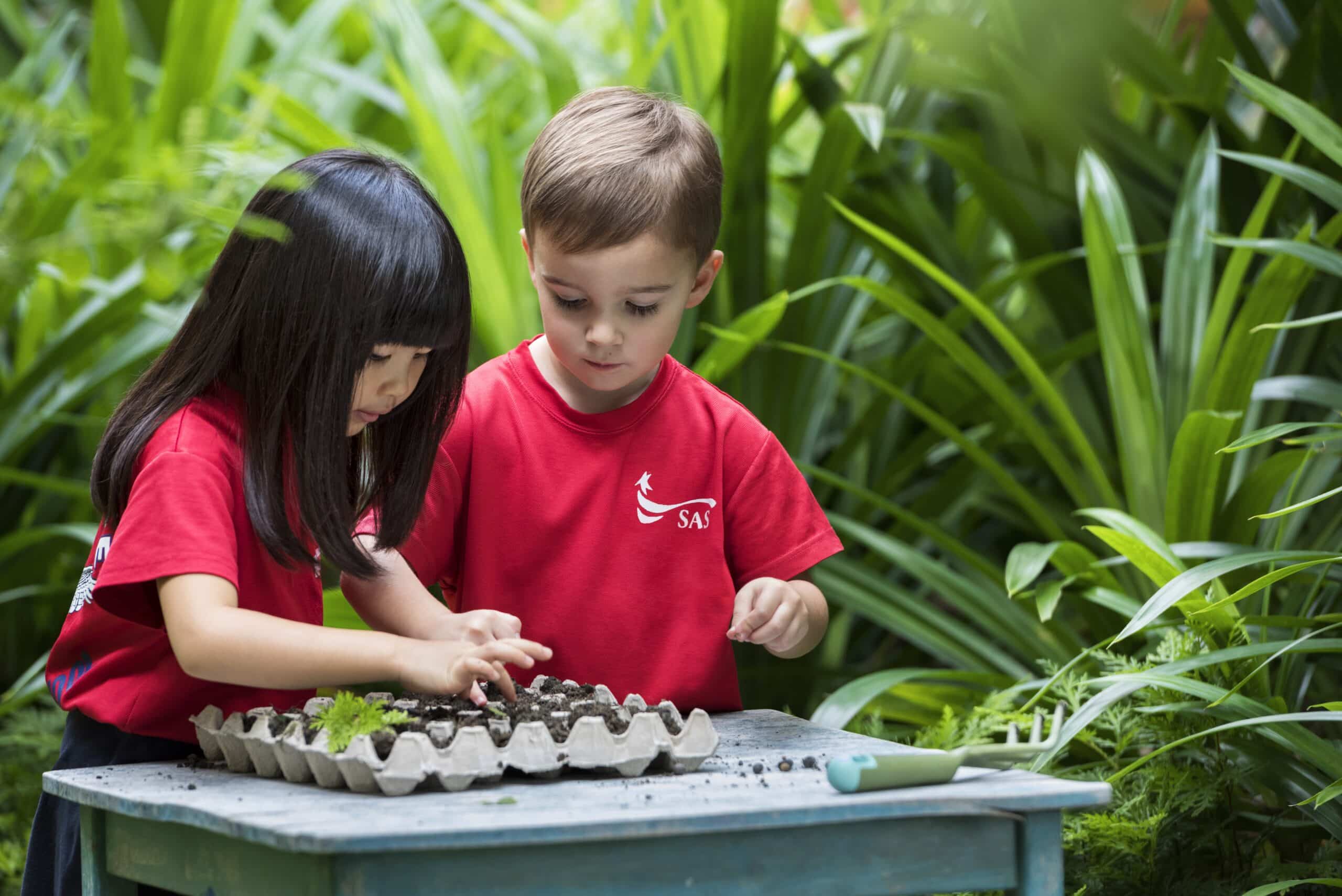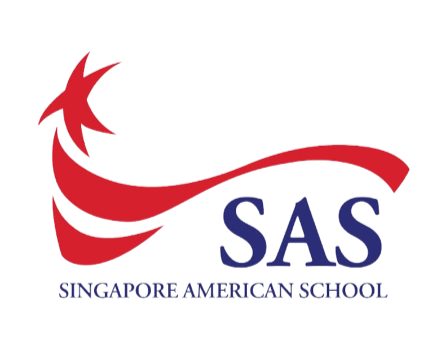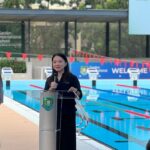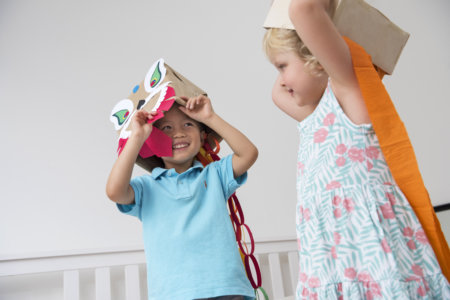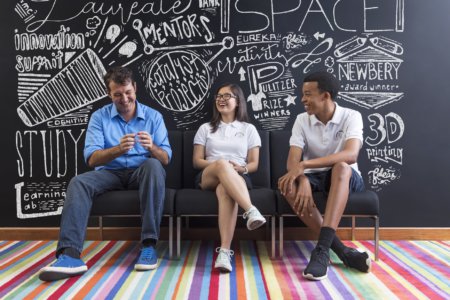Days are full at the happiest place in Singapore American School’s (SAS) campus. The Early Learning Centre is where young children gain an education based on Reggio-inspired philosophy as they evolve into unique, capable, and curious learners. Here, children in preschool (age three), pre-kindergarten (age four), kindergarten (age five), and first grade (age six) investigate, ideate, build relationships, and create shared meaning about the world around them — all in one day.
Mornings start slow. After getting dropped off, young bodies and minds power up for the day., through an indoor exploration session. Then, a connection time follows. This is when students and staff greet one another as they sit on the rug and set their goals for the day.
Huda Hanapiah, as a pre-kindergarten teacher, makes sure everyone is heard. Her role requires her to observe the children and scaffold their learning according to their needs. “I spend the day working in small groups and supporting them based on their interests and inquiries,” she says.
“In my class, the children get to decide on an independent exploration and I support them by ensuring that they see through the entire process. They get a sense of achievement when they accomplish the task and goal that they have set up for themselves.”
More exploration is in store during classes where students explore perceptual motor skills and are immersed in the language of Chinese.
Then, it’s time for the favourite part of the day for most students: outdoor play. All five senses are kindled as children take part in group games, hang out with peers and ride bikes.
When mid-morning comes, the class will work in small groups where they participate in group discussions, engage in experiential learning, and deep dive into their project inquiries. “There are also opportunities for them to select independent work,” she says. “We end our day with a closing connection time where we reflect upon our learning. Sometimes, we might play group games, which is an absolute favourite for every child.”
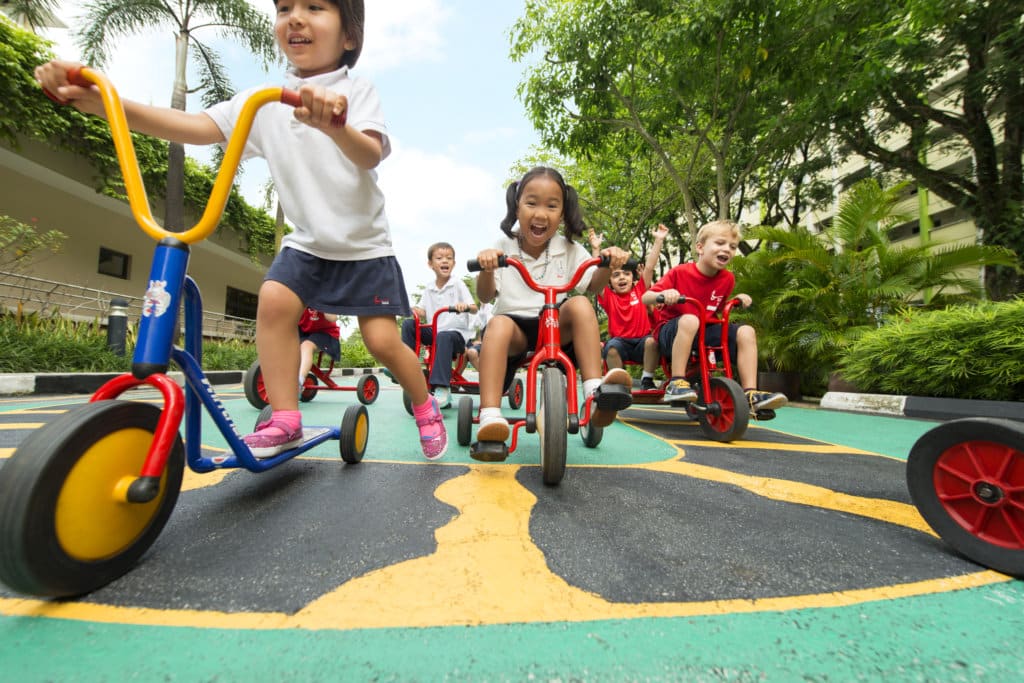
At Singapore American School’s Early Learning Centre, the days are full and the smiles are infectious. Source: Singapore American School
SAS believes children are agents of their own learning — from even as young as three years old. Classes at the Early Learning Centre reflect this. Specialist teachers guide, instead of dictate, so that students here form a strong ability to make their own decisions and advocate positive contributions to their community.
Teachers act as researchers too. This means preschool teachers here observe and listen to children, asking questions to discover their ideas, hypotheses, and theories. They act as a support and a resource for children, considering how children’s thinking might be guided toward new discoveries.
But teachers are by no means the only source of support here. There are speech/language services, classroom guidance sessions, counsellor and/or psychological support to students, parents, and professional staff.
As part of the ELC team, the speech-language specialist helps identify and provide services to preschool children who may have communication difficulties which could interfere with their learning or development of their social skills. They consider aspects of the child’s communication such as their ability to understand others (receptive language), express themselves with words and/or gestures (expressive language) and use language as a social tool (pragmatics). Also considered would be their articulation of speech sounds, rate of speech, vocal quality and fluency.
Meanwhile, counsellors provide guidance lessons to pre-kindergarten classes which focus on the core values. A full-time psychologist provides academic/behavioural screenings, individualised psycho-educational assessments and consultation with staff and parents to assist with a student’s growth and development.
Such wide-reaching support help SAS make relationships the heart of its Early Learning Centre. Opportunities abound for children to build and develop relationships with teachers, their peers, their learning environment, and the parent community.
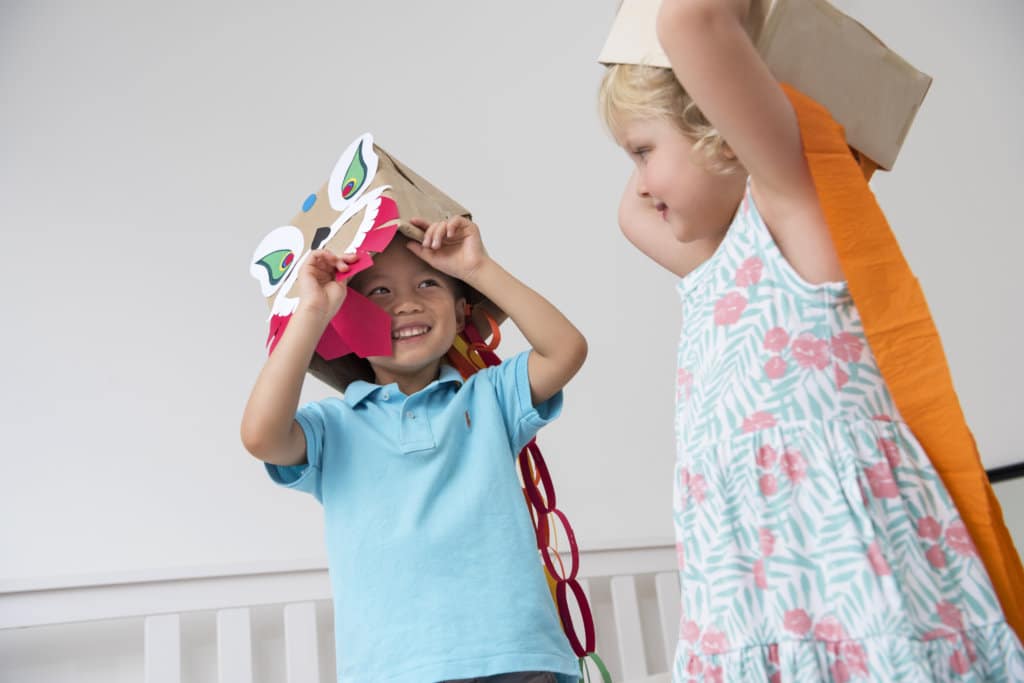
The Early Learning Centre lets children investigate, ideate, build relationships, and create shared meaning about the world around them — all in one day. Source: Singapore American School
An intentional, flexible, and reflective environment helps this process. They have all the tools they need to form clay sculptures, draw, paint, cut paper, dance, sing, play doctor, make models, and more. Such an environment does more than let children ideate — it prompts relationships, communication, collaboration, and exploration.
The hundred languages of children are spoken here, allowing for endless possibilities of expression. SAS believes that children have 100 different languages of learning, and 100 different ways to express their thoughts, understanding, and creativity. This can take many forms, from dancing and painting to imagining and exploring, to listening and questioning.
The benefits of the Early Learning Centre are immediate — with many lessons that linger over a lifetime. By creating a shared meaning of the world from a young age, SAS students are set for a bright future.
“The classroom is a safe space for young children to take risks, make mistakes, negotiate for their needs and wants, and also learn to disagree with their peers,” says Hanapiah. In other words, they’re forging the knowledge, skills and experience that will help them thrive in the next stage of their education and lives.
Follow Singapore American School on Facebook, Twitter, YouTube, and Instagram

